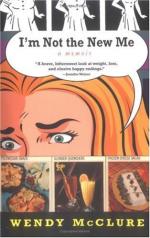“Perhaps he tripped on the cord, as you did on the cow;” suggested Denny, with a grin.
It seemed likely enough, but I gave very little thought to it, for I was busy studying the boy’s face.
“No doubt,” said Hogvardt, “he fell in running away, and was stunned; and they did not notice it in the dark, or were afraid to stop. But they’ll be back, my lord, and soon.”
“Carry him inside,” said I. “It won’t hurt us to have a hostage.”
Denny lifted the lad in his long arms—Denny was a tall, powerful fellow—and strode off with him. I followed, wondering who it was that we had got hold of; for the boy was strikingly handsome. I was last in, and barred the door. Denny had set our prisoner down in an armchair, where he sat now, conscious again, but still with a dazed look in his large, dark eyes, as he looked from me to the rest, and back again to me, finally fixing a long glance on my face.
“Well, young man,” said I, “you’ve begun this sort of thing early. Lifting cattle and taking murder in the day’s work is pretty good for a youngster like you. Who are you?”
“Where am I?” he cried, in that blurred, indistinct kind of voice that comes with mental bewilderment.
“You’re in my house,” said I, “and the rest of your infernal gang’s outside, and going to stay there. So you must make the best of it.”
The boy turned his head away and closed his eyes. Suddenly I snatched the lantern from Hogvardt. But I paused before I brought it close to the boy’s face, as I had meant to do, and I said:
“You fellows go and get something to eat and a snooze, if you like. I’ll look after this youngster. I’ll call you if anything happens outside.”
After a few unselfish protests, they did as I bade them. I was left alone in the hall with the prisoner, and merry voices from the kitchen told me that the battle was being fought again over the wine. I set the lantern close to the boy’s face.
“H’m!” said I, after a prolonged scrutiny. Then I sat down on the table, and began to hum softly that wretched chant of One-eyed Alexander’s, which had a terrible trick of sticking in a man’s head.
For a few minutes I hummed. The lad shivered, stirred uneasily, and opened his eyes. I had never seen such eyes, and I could not conscientiously except even Beatrice Hipgrave’s, which were in their way quite fine. I hummed away, and the boy said, still in a dreamy voice, but with an imploring gesture of his hand:
“Ah, no, not that! Not that, Constantine!”
“He’s a tender-hearted youth,” said I; and I was smiling now. The whole episode was singularly unusual and interesting.
The boy’s eyes were on mine again. I met his glance full and square. Then I poured out some water, and gave it to him. He took it with trembling hand—the hand did not escape my notice—and drank it eagerly, setting the glass down with a sigh.




